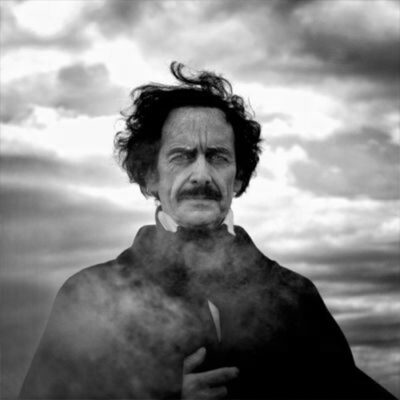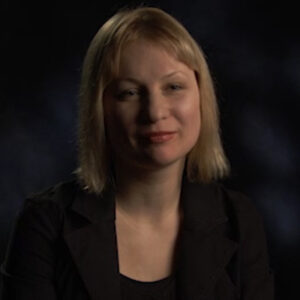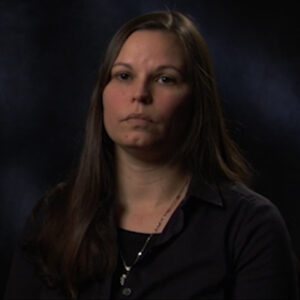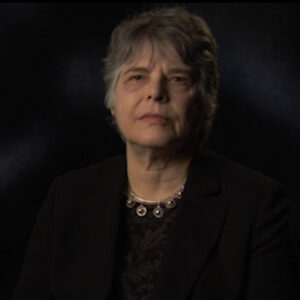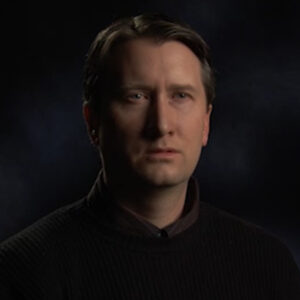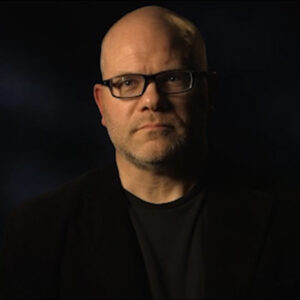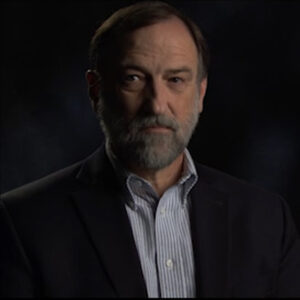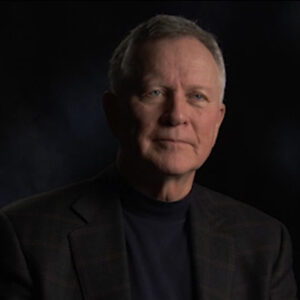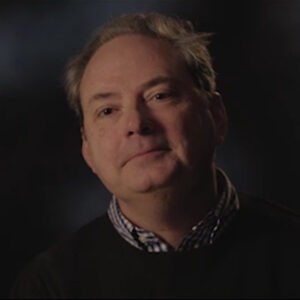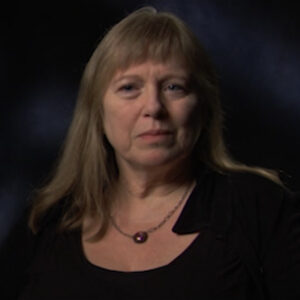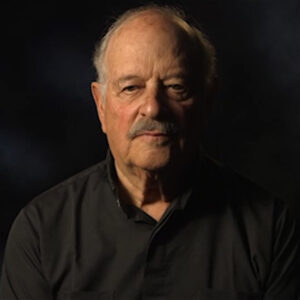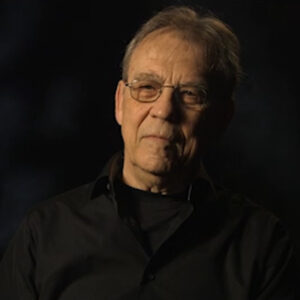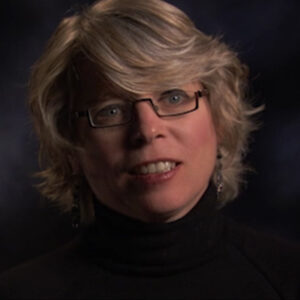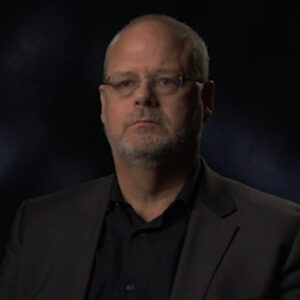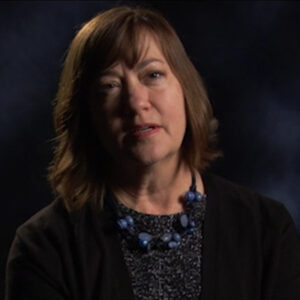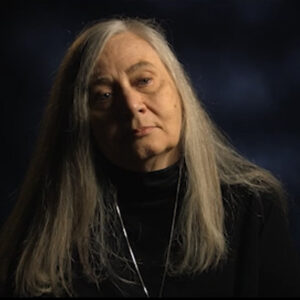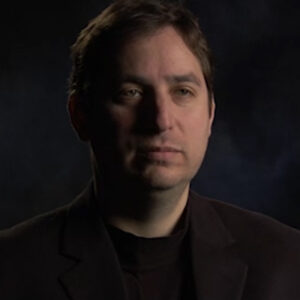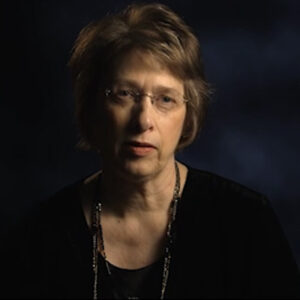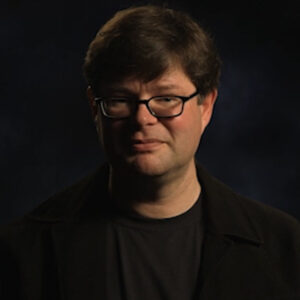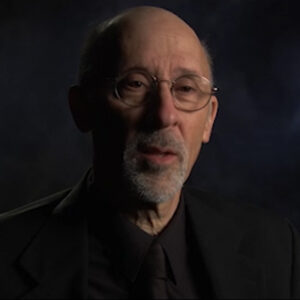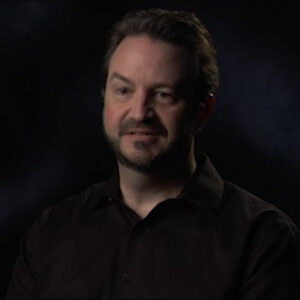Speaker What did people feel about the middle name that he was given by his foster family and how through his life did he use or not use that name?
Speaker Yes, well, people felt both that he wasn’t entitled to it and didn’t want it. As for the foster father, John Allen cut him out of his will. They had argued constantly in the time that John Allen was bringing up hope. And every single letter that Paul wrote, every poem that he published, every essay that he published, every every short story that he published is signed Edgar a Poe. There is not a single work by Poe, not a single letter by Poe that is signed, Edgar Allen Poe. That was all added after his death. I think we do Poe a great disservice by continuing to call an Edgar Allen Poe as if we call you know, we talk about we talk about T.S. Eliot and W.H. Auden and we should really talk about Edgar Ray Poe.
Speaker Why do you think, oh, God, that little named after his death.
Speaker It was given to him by Rufus Griswold, who brought out an edition of Poe’s works after Poe’s death, Griswold and Poe. Griswold is a literary critic. In the 19th century, he and Poe did not get along. They they quarreled often. And I have a feeling I don’t know this for sure, but that Griswold did it as a kind of slight to Poe, knowing that never had a Poe ever use the name.
Speaker It’s really interesting, I heard anyone say that, could I ask you just to embellish it a little more than make sure maybe you could start by saying in his lifetime, you know, Edgar never used his middle name all, and it was only after his death that Rufus goes something like this in context in his in his lifetime.
Speaker Poe never used the name Edgar Allan Poe. He did not get along with the Allens. He did not get along with John Allen, who took him in. They called constantly. And John Allen cut Poe out of his will. Poe never use the name alone. He thought he didn’t earn it, that it wasn’t part of him. And he even despised the name. As far as I know, he always signed himself. Edgar Poe, his very first work, Tamburlaine and other poems came out as the work of Edgar a Poe. And that was true of every other thing that Polk published in his lifetime.
Speaker Thank you.
Speaker Flashing back is what? What was the impact of his mother’s death at such a young age? And you could use Poe as an example of child labor. You know what happens?
Speaker Poe’s mother was a very well known actor, actress on the American stage. She was a she sang she did comedy roles. She was very popular. Unfortunately, she died when Paul was only three years old and he was then taken and then by the Allen family. But he never he never really got over her death. It stayed with him all his life. I mean, the sense of his mother, the sense of his early loss stayed with Poe constantly. I think it appears in all of his works this terrible sense of loss. Poe is really haunted by it. It troubled him terribly his whole life long.
Speaker And what you write in your book about childhood bereavement in general and what happens to it, how children process the death of a parent. You talk a little bit about that.
Speaker Well, children have different ways of processing than death. For many children, it means a denial of death or it means trying to reassert the possibility that the parent or some dead person is really still alive. I mean, in Poe’s work, constantly, people never really die. There is no death. Things don’t disappear. They come back. They live again. And I certainly wanted that lost mother of his to come back to be with him at once more.
Speaker That’s right.
Speaker So one of his early fixations was about the age of 15 or 16 with the standard is around who that dies, who then dies herself, you know, sanity.
Speaker They don’t really say, you know, um, how did that affect how and how did how? Now, at the age of 15, 16, how was he able to take that morning and somehow begin to make poetry out of it?
Speaker Oh, I think I better stay out of that. My Jane standard and recollections are not good.
Speaker All right.
Speaker Well, how about more generally the kind of cultural obsession with death or I don’t know if obsession since death was everywhere in that period, what was going on in the culture at large in terms of funerary art and memorialization, rites and rituals and planned cemeteries as landscape spaces and what was happening in America? And how was this young that Coppo soaking that up?
Speaker Well, in the culture at the time, there was a kind of generalized denial of death. I mean, Thoreau’s Walden, for instance, ends with spring. It ends with the recreation of life, Emerson to the transcendentalists, all feld’s all sort of denied death and thinking that immortality, survival and so on.
Speaker Oh, I wish I had a better answer for that. Pretty good.
Speaker Well, how the great thing, I suppose, also would be Walt Whitman talking about denial of death. Whitman always his new grass growing. I mean, the grass grows again all the time. It never dies.
Speaker And then there’s this issue to of premature burial. Right. This kind of general fear of not recognizing when people died and the possibility of being buried alive.
Speaker Unmined. I’m sorry.
Speaker OK, that’s that’s all right. Now, listen, this is good. I’m going back to the Allens John and Frances Allen. Why did they take young Edgar in?
Speaker And how did their relationship with Edgar change over time as he was young?
Speaker Well, as people do nowadays, also, they they kindly took in, uh, this poor, bereft young child. Uh, at first it all worked out very well. And Poe remained very close with Fanny Allen. John Allen was a very profitable merchant in Richmond to his firm, did very well. He later moved to England, to London and started a new branch of the firm that did not do well. And he lost a tremendous amount of money. But he and posts as people age, they got on bad terms. John Paul wasn’t a businessman. Obviously, he wasn’t headed for a business. And, uh, John Allen wasn’t crazy about proposed new directions. I mean, writing, sitting there, writing these poems and so on instead of going into business.
Speaker How do you think Edgar saw John Allen? They say that fifteen sixteen year old Edgar Allen steeping himself in Byron. And how did he see John Allen?
Speaker Well, he certainly wanted to be cared for by Allen as their relationship worsened and as they got on bad terms for one reason or another, he started certainly disliking John Allen. Allen had helped him, but that didn’t. Not that at all. Not last long.
Speaker Thank you. Would you like some water? I’m all right, thank you, John.
Speaker So I don’t know if this is going too far. Maybe you think it is. But could you talk about John Allen as a representative of this crass capitalist, self-made American man, the Jacksonian ideal of your guy?
Speaker I mean, how is that? And I’m particularly curious whether you could buy do you think that clashes with Poe’s idea of himself as a gentleman by scholar type?
Speaker Uh, well, John Allen was a sort of self-made man. I mean, he did very well in his business life. He was very devoted to his business. They brought in huge quantities of tobacco, especially, but many other products that he sold from his store. He did a great trade in tobacco that that wasn’t postgame at all. Postgame was really Byron and and writing poetry. He didn’t care for that at all. John Allen, although early on he joined the Army and he was up for all of that. And later on he went to West Point for a short time. There was that kind of backbone of the kind of athleticism and power. People appreciated that in him, too. He made this fabulous swim on the James River. I was it three miles or five miles in imitation, really, of Byron. But people thought of him as being very athletic and he apparently was that sort of fit in well with John Allen. But the Byron stuff and the Tamerlane and all of this, that wasn’t John Allen’s cup of tea.
Speaker Can I ask you more about the famous swim up the James River, if I remember. Yeah, I’m sorry we’re getting so much. Was it through?
Speaker And I hate hearing it. Just know what we can do. That’s what I was like. Michael Jackson, whenever you get.
Speaker But there’s a handwritten OK right out there that think, you know, this microphone is very censored, OK, except everyone will live with it. Sort of like the sound of the Furies and um. Yeah, the swim on the James River. And I wanted to ask you about that if you could. Do you feel comfortable talking a little bit?
Speaker Six miles, I guess, six miles and on a blistering hot day. And he describes getting out of the water finally with sunburn up and down his back stairs. So if you could just say at the age of 16 or so, post made this rather dramatic.
Speaker Yes. Well, of course, we think of Poe as a as a kind of drunk. I mean, and people thought of him later on as a drunk. And he he certainly later on drank too much. And we think of him ending up very badly, falling drunk and dying somewhere. But it’s a matter of fact, as a young man, Paul was quite athletic. He was engaged in all kinds of sports and activities. And he did this extraordinary swim on the James River, I think it was six, six miles. He came out all blistered and so on from the sun. But he had a very athletic build and was known to his friends and to people around the Allen family.
Speaker As an athlete, what do you think he was trying to prove that that’s why? Because he felt somewhat of an inferiority complex while he was in Richmond?
Speaker Yes. Well, he had in mind a famous swim that Byron had made in this, as in other things, he was imitating Byron. And I believe the swim was an invitation for Byron.
Speaker Thank you.
Speaker I’m going to just put a little piece of tape on your collar keeps popping up. Oh, I’m sorry. No, that’s all right. Just can’t keep it down. I think that’ll do it right.
Speaker OK, so this is fixation with Byron can talk about why the Byronic image was 20s, early 30s. I guess we’re talking about, you know, what was Poe latching on to?
Speaker Who was Byron in the popular imagination?
Speaker Wow.
Speaker I mean, I’m I stay away from that. There was a lot of except to say that there was a lot of criticism of Byron in Palestine. Many people, especially the middle class sort of moral sense, found Byron reprehensible.
Speaker I mean, he went out too far and there are too many women involved and too many loose ends. Didn’t feel that at all. He greatly admired Byron as a poet and wanted to imitate him.
Speaker And as a young artist or young wannabe artist was trying to create an identity for himself that was in the Byronic mold.
Speaker Yes, he certainly took Byron as a as a model. So there was there was strongly pro there, too. I mean, he was although he took Byron as his model, his own voice appears very early, I think, in his work, especially the sort of the distrust of death, the sort of feeling that things should not die and that he doesn’t want them to die or really indeed that they can’t die, that they always come back, that there’s always new life, as indeed he hoped that his mother might come back.
Speaker When polled most of the Southern Literary Messenger in this early, I guess early mid 20s is about twenty five and you know, it’s here and he starts to create this reputation as a critic. Yes, very harsh critic, but a serious critic. He seems to be on a mission to elevate American literature, and he really sees a bigger goal than just being a critic.
Speaker Talk about that.
Speaker Well, like Emerson, whom we otherwise doesn’t much resemble, Poe wanted to create in American literature.
Speaker He wanted American literature to stay away from European literature and not simply imitate what was going on in in Europe. He’s very opposed to people like Longfellow, whom he feels are too close to European models, to too envious of European work. Poe wants to create an American literature and in fact, he does.
Speaker And what sort of critic is he in? Why is he such a harsh critic?
Speaker Well, he’s prose obsessed with language. Of course, he he loves language. He loves experimenting with language. He loves trying to make language, do new things. And he’s very opposed to writers, poets, especially who whose concern is rather with moral questions and not with language in in in for itself.
Speaker So the date, the heresy of the didactic, yes, what Poe calls the heresy of the didactic, being concerned to teach lessons and to tell people how to live once language to live. And he wants to know what you can do with language, what new effect you can create with language.
Speaker When he starts to write his tales, so now he’s moved on to Philadelphia, he’s having some success as both as a magazine, but also publishing like Geia in the fall of the House of Usher and these stories that are beginning to really prove what a what a clever and powerful writer he can be.
Speaker Um, what is he tapping into an idea in America? What what is he latching on to?
Speaker Well, there had, of course, been short story writing in America before post time. We think of Washington Irving even if came sooner, Cooper, who basically wrote long novels. But this is a lot of story writing in American pastime, but nothing like prose fiction. I mean, he really invents his own mode of fiction, including, of course, detective fiction.
Speaker And in his stories, as in his poems, much is concerned with the impossibility of death with people coming back to life.
Speaker And the tissue tissue just out.
Speaker Oh, I’m sorry. I can feel it’s like leaking there.
Speaker Just just a little time.
Speaker Oh, I’m sorry for this, thank you. Yes, I got it. Thank you.
Speaker Are you able to read? Do you need glasses? I can read, sure, because you would just take a look at this paragraph, which I love. All right. And I because I haven’t quite formulated the question, starting with Edgars.
Speaker If. OK. Miss.
Speaker Yes. OK. I don’t have a question to ask. That’s why I wanted you to read it. But I can try and then maybe just to clarify phrase that because I’m sorry for this.
Speaker I mean, the stuff that thirty years to twenty five you I could have told you that from the time I ended up, but unfortunately they haven’t given me my money yet, so I took that long.
Speaker But but I mean what I, the reason I wanted you to read that is because what I want to ask you about is these contradictions and polls and the most obvious ones are life and death. Yeah. Yeah. He’s one of the few writers where the difference between life and death seems to be rather vague. But all these other things, too, in here, that paragraph does such a good job of tying it all together.
Speaker So I guess my question is in post stories, particularly the horror stories, the weird stories, what what’s coming out from Poe’s own life? What sort of vagaries and oddities?
Speaker Well, pope himself speaks of his innate love of contradiction, and that contradiction pervades everything that Paul wrote, particularly in the form of death in life and life and death, but also the near and the far, the ugly and the beautiful. His work is filled with yet contradiction, inconsistency rooted, I suppose, in his simply not wanting to come to terms with to accept, you know, his poor child. His mother’s death was, in my mind, very unhappy, very unfortunate person. Inwardly, he suffered all his life. You know, he he had a terrible sense of loss.
Speaker And on top of that, he had been in this grinding poverty.
Speaker What was it like for him to be trying to make a living as a writer? Why was it so hard? And what was he up against?
Speaker Well, of course, the 90s in the middle of the 19th century, it wasn’t easy to earn your living as a writer in America. People wrote and published, but there are really no there are very few professional writers around. James A. Cooper managed to make a living out of writing, I think Washington. I mean, to some extent, but really none others who had to work very, very hard to scratch a living out of writing. He worked very hard. He was working all the time. He sat at his desk churning out essays and reviews and stories and poems.
Speaker He was an extremely hard working writer, and yet he was known as a drunk as well, or at least occasionally what happened.
Speaker Yes, he also had a reputation for hard drinking. I don’t know how exaggerated that may be. It got worse, certainly toward the end of his life when after the death of his wife, his cousin Virginia, and after his failed pursuit of one or two other women, then the drinking obviously took hold of him. But otherwise, Poe was an extremely hardworking, dedicated writer, you know.
Speaker So when when Virginia. Well, first of all, let me back up in time a little bit to when he marries. He’s 27 years old and he marries this 13 year old first cousin. Can you just explain that when he said when he married his 13 year old cousin? And what do you think people made of it? And was it considered terrible at the time?
Speaker Yes. People frowned, certainly on marriage to his 13 year old cousin for various reasons. The cousin ship and and the youth. I’m sorry. I’m sorry. I’m not not like that. Really can’t get into it.
Speaker That’s fine. Skip over that. Um.
Speaker Usually we at everyone to turn off cell phones before we start, but that’s OK and didn’t cause any problem, he was certainly very much in love with her. I think well, maybe if I could just ask that about there, because there were descriptions I think you had some in your book of how people would see the two of them as being an absolutely. Yeah. Loaded couple. Yes.
Speaker Well, I think Paul was certainly loved deeply in love with Virginia, and her death was paralyzing to them. Some people certainly disapproved of his marrying his cousin, marrying someone 13 years old. But Paul loved her very greatly.
Speaker And when she has her first hemorrhage from TV and I think it’s about 18, 40 or so, they’re living in Philadelphia, it’s actually a pretty good time in his life, you know, and but that happens. What do you think the the onslaught of that disease and her inevitable death, what did that do to him?
Speaker Oh, Paul was really destroyed by her death. Uh, the hard drinking and all that. The falling apart mostly occurs really after Virginia’s death. I think it was, you know, the second time first his mother taken away when he was three and now his beloved wife taken away when he’s in, you know, in his mid 20s, very, very difficult for him to deal with.
Speaker And even before she died in that five years between when she first coughs up blood while he’s waiting, I mean, in that period, how do you think he felt?
Speaker I’m sorry.
Speaker Sorry, Eric. Sorry.
Speaker Um, Poe meets Dickens, and right around the same time, I think that Virginia is diagnosed. Uh, what did it mean to him? To me? Dickens to get Dickens.
Speaker Sorry, Eric. I’m sorry. Hey, listen, you know, I’m not being fair to you, and I think you should do more with just a little too far away from me.
Speaker Really. I mean, doing very well, you know.
Speaker Uh, OK, I’ll try a little more, but I don’t want to ruin your career. Take up all your time. We were here until two o’clock. So anyway, I think you have to stay until two o’clock.
Speaker But we have the room until are at least for another half hour. All right. So, um, no, I mean, if you don’t mind, I’ll just.
Speaker No, but I feel bad both for you and and certainly for myself.
Speaker I’ve been doing very well. And I appreciate that. You’re just saying you feel you can OK, you don’t mind. Oh, OK.
Speaker OK, um, you don’t want to take up the comment that he was our greatest bad writer. You know, I don’t want what’s his name. Oh you know, what’s his name. Oh for crying. I’m very well well-known writer Mathison. I know Jane. What I who said pose the greatest bad writer.
Speaker Oh you know, I mean I know it. And why you know writer Harold Bloom. No, no, no. Oh. Very popular on Broadway and oh.
Speaker Whose parents own the place. And uh at the theater. Edgar Edgar.
Speaker Oh. Oh oh my God Doctor. I’m a doctor and a doctor. Yeah.
Speaker He alienated all the poor people by saying Pope was our greatest bad writer.
Speaker Well, OK, let me ask a question like. Yeah. Why is it that so much of the literary establishment in America has denigrated power over the years, for decades?
Speaker Well, we’re still in the sort of post Hemingway post Gertrude Stein era. I mean, we we expect our prose to be hard and to we are expect our prose, our prose to make some strong effect and to deal sort of head on face on with people posing out there. I mean, his poems, Imagination and Dream and Lance and, you know, and imagination, we’re we’re for harder stuff. I think we saw we may be getting out of that, but.
Speaker And, uh, so you talked about did you talk about Griswold only, only a little bit.
Speaker Yes, they did not get along. Griswold wasn’t a very popular critic in the 19th century. He and Poe did not get along. They quarrel very often. And it was just too bad for Poe that Griswold took on the publication of Poe’s works after his death was a great shame.
Speaker And what about the obituary of the famous, quote, fake obituary that was published just days after his death? What what did that do? I’m sorry. Sorry, Eric.
Speaker Um, uh, can we talk about the Raven Act or the Raven?
Speaker Can you talk a little bit about what did that do for.
Speaker Oh, the Raven did a great deal for Poe’s reputation. It was an extremely popular poem. People were reciting it and reading it all over the place. Uh, Poe was living then, of course, and in New York and near Washington Square Park. And people around there were reciting the Raven all over the place. It did a great deal for his reputation and it was probably still is one of the most popular poems ever written in America.
Speaker What do you think of it?
Speaker And, uh, this is our greatest bad writer.
Speaker Uh, that’s a wonderful work of imagination and certainly.
Speaker Oh, yes, there’s nothing like it, is that a great poem?
Speaker I would not call it a great poem. Mean again, we’re we’re still you know, we’re still following Gertrude out there, I’m following Gertrude. It’s too fuzzy. I mean, I want some hard stuff, you know, forget about never more. Well, POWs, POWs, never more. There is is terribly it it’s terrible for Poe himself that never more he I think he is saying to himself, never more throughout his life, never more will lie and never more will my mother come back. Never more will my wife come back. It’s a Poe. Is is this the God of nevermore?
Speaker And the title of your book, Mournful A Never Ending Remembrance, is, I believe, a line from the philosophy of composition.
Speaker Yes, yes. After the raven. Yes. Can you give us the context of that?
Speaker Yes, Po Po is really stuck in his memory, the the the death of his mother at the age of three is there with him, I think really all the time, never ending remembrance. Later, just the death of his wife, Virginia, stays with him, too, as a never ending remembrance.
Speaker His post suffers all his life from terrible, terrible, terrible past. He had a very tough life and he suffers from his past constantly.
Speaker And as a as a pioneer in American literature, I don’t mean that maybe you don’t feel he was, but what did he do that was new and different? And I guess something about psychological literature or going going places that other writers had gone to do do well, pose a really great pioneer in American literature and pose a great pioneer in American literature.
Speaker Together with, say, Emerson and Thoreau and Walt Whitman, Poe brings something entirely new into American literature that affects European writers and affects writers to this day. I mean, he, you know, really invents the detective story. He brings in all kinds of new verbal effects, a new kind of rhyme and rhythm in his poetry, new kinds of subject matter in his fiction. He’s, you know, he together with Emerson and Whitman, let’s say he stands out in creating the importance of American literature in the 19th century until we have these people, including pro American literature, is sort of second to European literature, but perhaps to create a first rate American literature.
Speaker That’s great. Thank you.
Speaker And how did is the mysterious circumstances of his death add to the whole mystique? Why was that part of the bigger picture?
Speaker Yes, well, we’ve never been sure how Poe died. I mean, his death, unfortunately, you know, rather seems like one of his own short stories where you’re not sure who did what and when, when, what happened.
Speaker Many, many different accounts of Poe’s dying, whether it was by alcoholism or by the hospital or being thrown on the floor of a bathroom.
Speaker We don’t still really know accurately how people died and the endurance of power as a popular writer, maybe unique among 19th century writers at this point, that generation after generation keeps holding on to that.
Speaker Yes, poets certainly remembered in America and really throughout Europe. And I think also in the Orient today as an important American writer, his reputation, I mean, worldwide, is probably the greatest of any American writer. That is not in any way to say that he is the greatest American writer, but his reputation is probably greater than that of any other American writer.
Speaker And why?
Speaker Well, he has so many things to him. I mean, there’s there’s the mystery fiction. There is all the wild imagination. There’s the encouragement to to break new, to make it new, to imagine fresh things, to experiment with language. Poe, you know, the drives literature and so many different directions that people are still taking. Let’s let’s pause for a minute action to put five go after I had finished writing about him, reaction was just to feel sorry for him, I think, at a very sad existence. He was a very, very troubled, very, very unhappy person all his life. And yet with that, he managed to turn out a tremendous quantity of criticism and prose and short stories and poetry, how he did it with that awful nagging, endless sadness. This is quite remarkable.
Speaker Do you have a favorite poem or for us as opposed to the next lyric? No, I am sure that I do. I’m just trying to think of I like some of those late essays about existence or nonexistence. Really quite striking. Very extraordinary.

